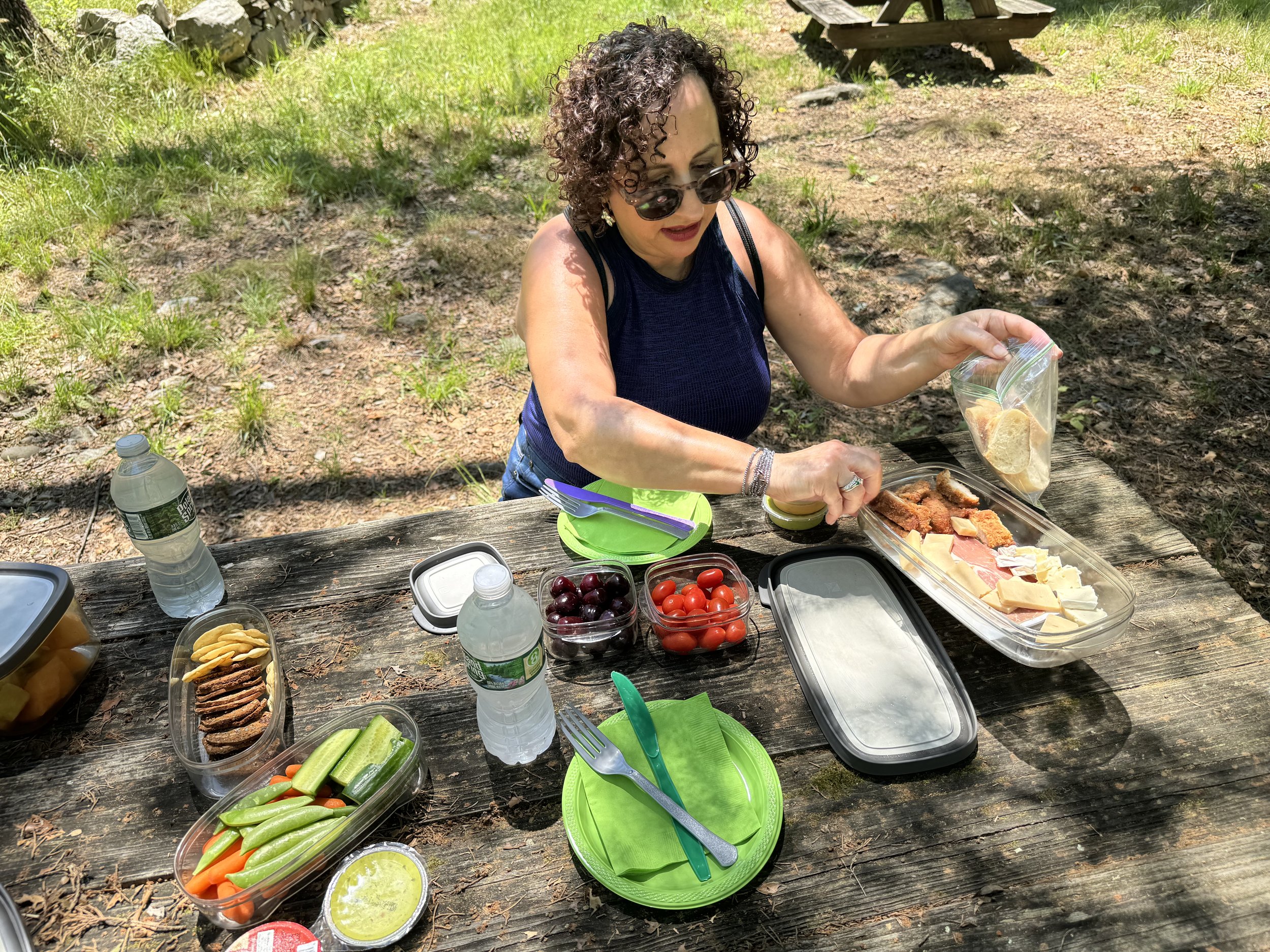Does this sound familiar? Your mind is filled with a running list of tasks, places to visit, and projects to start (or finish). The thoughts swirling in your brain feel like one giant, cluttered mess.
It can be more challenging to concentrate, take action, or make progress because your ponderings are caught in thought loops. Simply thinking about the possibilities can leave you feeling anxious, exhausted, or demotivated.
Guess what? I’ve been there, too. It’s not that I don’t have task lists to manage, because I do. However, those tasks and events have already been prioritized, planned, and accounted for. They aren’t the issue, but the unaccounted-for ones are. Many of those items require coordination with my husband, Steve.
To clear my mind clutter, I engaged in a helpful process that I will share with you. If your cluttered thoughts have nowhere to go, I encourage you to experiment with this strategy.
The Process to Calm Mind Clutter
Step 1: Activate the Process
This may seem obvious, but the first step is to schedule a time to actively work on clearing your mind clutter. This intentional act will help you move in a productive direction.
Choose a time when you’re at your best. Steve and I decided to meet on a weekend morning after breakfast when we felt alert and well-rested.
Step 2: Do a Brain Download
Release your thoughts, which will immediately clear your mind clutter. This clearing is analogous to decluttering a kitchen counter or editing an overflowing basket of magazines. Relief is felt as space opens up.
The brain download can take many forms. Your capture tool can be analog, digital, or auditory. I used a blank piece of paper, which I titled “Planning with Steve.”
Create categories if it’s helpful. I separated the page into four columns, each representing a different category: Papers/Logging, Fun, Home, and Financial.
Populate your capture tool. As soon as a thought surfaced, we categorized and added it to the corresponding column. For example, “Visit the New York Botanical Garden” went into the Fun category. “Clear out the garage” was added to the Home column.
Step 3: Prioritize
Your capture tool is probably quite full now. You might feel overwhelmed, as in, “How am I going to get it all done?” You can accomplish everything, but not all at once.
Prioritizing comes next. Instead of planning every single thing you captured, select the top three or four things you want to focus on first.
There is no right or wrong way to prioritize. For example, your priorities could be time-based if something has a specific deadline, or preference-based, as in what you’d like to accomplish or do first. We opted to prioritize several things from the Fun and Home categories.
Step 4: Commit
Commitment is the powerhouse of the mind decluttering strategy. It is essential and is often neglected. Overlooking this aspect can make Steps 1-3 ineffective.
Have your calendar ready.
Choose one of the priorities you identified.
Schedule a time block or blocks for that priority. We began by scheduling dates from the Fun category and then added a few projects from the Home category.
Repeat choosing and scheduling until those three or four top priorities are blocked out on your calendar.
We found it less overwhelming to focus on and schedule only the top few priorities. We will revisit this process and repeat Steps 3 and 4 once we have made progress on our initial priorities.
As an alternate approach, you may prefer to schedule everything from your brain download list in one sitting.
“Commitment is the powerhouse of the mind decluttering strategy.”
The Benefits of Mind Decluttering
There are many benefits to clearing mind clutter. Here are some of the positives I experienced using this process:
My mind feels clearer.
While we utilized a team approach for mind decluttering, I also see value in using this strategy individually.
The unproductive thought loops have ceased.
That anxious feeling has dissipated.
I feel less burdened by the projects and events because they now have a designated slot for attending to them.
I am excited because we have set aside time to focus on things that are important to us.
I feel confident that we will complete the tasks we prioritized.
I am glad that projects that have been incomplete for a long time will now be brought to completion.
I have happy anticipation about the fun things we’ve scheduled.
What Helps You Release Mind Clutter?
There are many ways to ease mind clutter, including the strategy I shared. What helps you declutter your mind? In what ways could the process I described be beneficial to you?
I’d love to hear your thoughts. I invite you to join the conversation.
How Can I Help?
Do you need support with organizing, editing, or decluttering your thoughts? I’d love to help! Virtual organizing is an extraordinary path forward – Local feel with a global reach.
Please schedule a Discovery Call, email me at linda@ohsorganized.com, or call 914-271-5673. Living clutter-free is possible, especially with support.


















